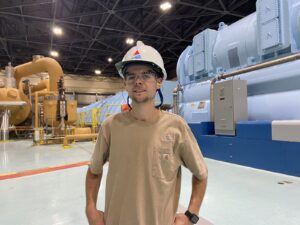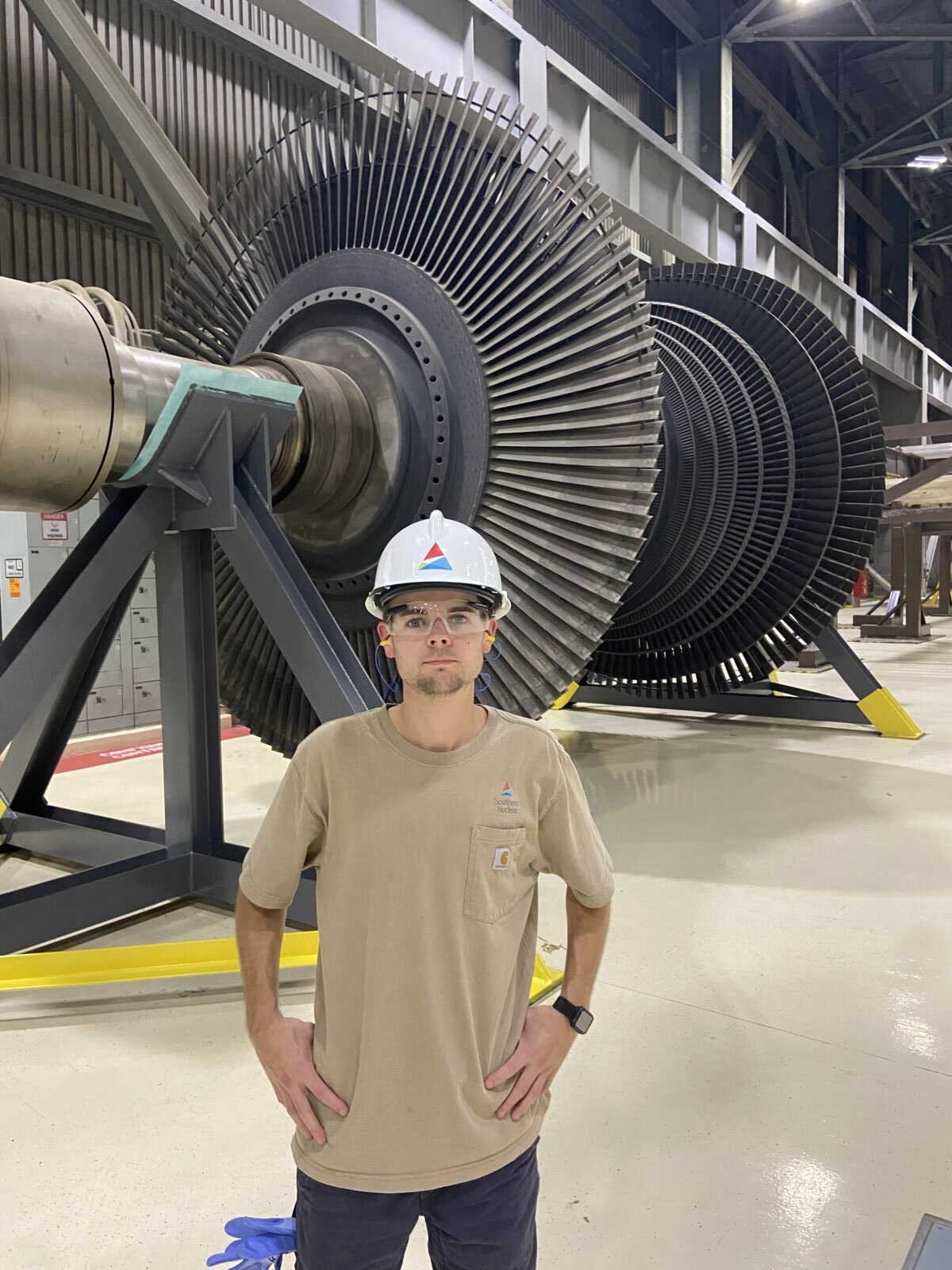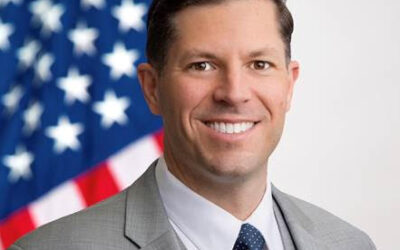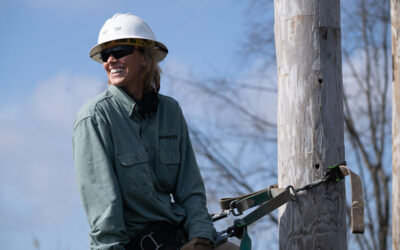Nuclear energy offers interesting and rewarding careers. The sector employees nearly 100,000 people with an average annual wage of about $100,000. Beyond financial rewards, nuclear power can provide jobs that allow people meaningful careers.
What may surprise some is the opportunities aren’t just for engineers. Positions range from entry-level to craft, professional and high-tech.
Just ask Chance Barker.
Barker was working for a contractor helping to construct two new nuclear units at Georgia Power’s Plant Vogtle near Augusta, Ga.
“I got familiar with the nuclear industry being (at Plant Vogtle) and decided I wanted to pursue a career there,” Barker said. “I thought you needed an engineering degree, but a friend there told me you didn’t.”
Instead, the friend pointed Barker to a two-year nuclear engineering technology program at Augusta Technical College. After completing his studies, Barker joined Plant Vogtle, where he is a nuclear mechanic. He is responsible for maintenance and repairs on a wide array of plant equipment and facilities.

Chance Barker
Barker said he likes being able to use his head and his hands.
“There’s always something new to learn,” Barker said. “It’s not like I am doing the same thing every day.”
A nuclear power plant typically employs 500 to 800 workers. There are approximately 150 job classifications at a plant, according to Michael Armstrong, talent acquisition manager for Southern Nuclear. The positions are in a variety of areas such as chemistry, IT, engineering, and environmental science. They also employ professionals in fields such as logistics, supply chain, accounting, and human resources.
“Coming out of the pandemic, the nuclear industry is recruiting heavily,” Armstrong said.
Along with good pay and benefits, nuclear energy employers are promoting the opportunity for long and diverse careers. In addition to Plant Vogtle’s new units, the operating lives of many existing plants are being extended. And a new generation of nuclear plants is being developed.
Katherine Mitchell didn’t start out planning a career in nuclear or engineering. It wasn’t until her childhood best friend convinced her to study engineering and a professor at Kennesaw State University offered her an opportunity in nuclear research that her course was set.
She is now a mechanical engineer employed by Enercon Services, working on projects for nuclear power stations.

Katherine Michell
“I find it is incredible how you can take these tiny things [atoms] and make so much power out of them,” she said. “It’s the cleanest energy form so far as carbon emissions and it produces an incomparable amount of energy for the amount of resources it actually takes.”
Mitchell said her experiences in nuclear power stations illustrates the diversity of skills sets and job types needed to operate a plant. She sometimes finds herself standing in line at a nuclear station with crane operators, welders, and janitors as well as other engineers.
Armstrong said that in addition to job-specific skills, plant operators are looking for people who are both curious and hard working. Nuclear culture encourages people to challenge the status quo and look for better ways to do things. There is a wealth of knowledge available from employees at a nuclear plant that presents an excellent opportunity for professional growth.
Mitchell and Barker also see the need to have attention to detail and to follow procedures to the letter.
Finally, Barker said he likes the focus on safety and sense of community.
“It’s a great field to work in,” Barker tells friends and family. “I’ve found nuclear to be very family oriented and it’s safe. It’s the safest field I’ve ever worked in.”




